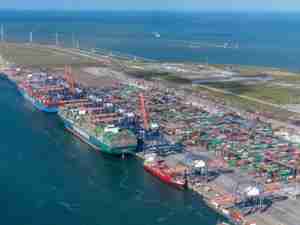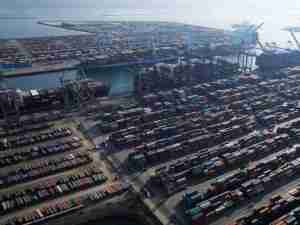CITIC Resources warns over China port probe; private metals firm investigated
By: Reuters | Jun 10 2014 at 07:26 AM | Ports & Terminals
China is investigating a private metals trading firm over a suspected metal financing scam at Qingdao port, police sources said, as CITIC Resources Holdings Ltd warned that metal it owns at the port may be affected by the probe.
The investigation at the port, the world’s seventh largest, is examining whether warehouse receipts were duplicated so that a cargo of metal could be used multiple times to obtain financing.
The news has hit metal prices, reflecting market fears about business practices in China and worries that the probe could spread to other ports and prompt a crackdown on using metal as collateral for finance.
China’s Qingdao Port Authority and the city’s police are investigating a private metals trading firm, Decheng Mining, over a suspected metal financing fraud at the port, two police sources with direct knowledge of the matter said.
A staff member at Decheng Mining’s Qingdao office, who would only give his surname as Liu, would not comment and a Singapore-registered associate company did not respond to a series of calls requesting comment.
The investigation into the status of aluminium and copper products stored at China’s third-biggest port may hit the firm, CITIC Resources said. Its shares closed 9.8 percent lower on Tuesday, in their biggest decline since January 2009. That compared to a 0.9-percent gain in the benchmark Hang Seng Index.
The firm said it had sought a court order in Qingdao on June 3 to secure its metal assets.
CITIC Resources is the commodities trading unit of China’s biggest and oldest state-owned financial conglomerate company, CITIC Group Corp. Singapore sovereign wealth fund Temasek Holdings also holds an 11.46 percent in the unit.
“At present, the status of the investigation is unknown to the group,” chairman Kwok Peter Viem said in a filing to the Hong Kong stock exchange.
“Until the status of the investigation is clarified, the company is not able to accurately assess its impact on the group’s alumina and copper stored at Qingdao port or on the group itself,” Kwok added.
Banks and trading houses have been checking their exposure to the port and others to see if they are at risk from the issuing of fake receipts.
China’s metals sector could have its access to funding squeezed and copper prices could come under renewed pressure if new cases arose.
CITIC joins Standard Bank Group and a part-owned unit of Louis Dreyfus Corp, Singapore-listed GKE Corp., which warned last week of potential losses.
Standard Chartered has said it is reviewing metals financing to a small number of companies in China and acknowledged there are issues in China around commodity.
Arun Murthy, global head of comomodities at Standard Chartered, also said in an email response to Reuters on Tuesday that commodity financing remained a key focus for the bank and it would not pull out of the business in China.
SECOND PORT DENIES PROBLEMS
Pledging commodities to a bank, often using a warehouse receipt as proof of ownership, has become a popular way of raising finance in China, often to skirt restrictions on raising credit and helping drive up stockpiles at some ports.
The Wall Street Journal, citing people familiar with the matter, reported Western banks were concerned that a potential fraud has flared up at a second Chinese port, Penglai, also located in Shandong province,
A Penglai port official told Reuters they were not affected by the investigation at Qingdao and business was normal. The official said the port owned the bonded metal warehouses, and they were not managed by a third-party warehouse firm or operator.
But while the problems at Qingdao may be an isolated case, questions have begun to play on the minds of traders and bankers doing business in the world’s largest commodity consumer into whether material they believe they own is secure.
Concerns over the events in Qingdao may push foreign banks to cut their commodity financing business in China, Goldman Sachs said in a note on June 9.
“We believe the developments in Qingdao are likely to continue the significant scaling back of FX inflows from foreign banks into China via commodity financing business.”
In March, the bank estimated commodity finance deals in China were worth as much as $160 billion, or about 31 percent of the country’s total short-term foreign exchange loans.
COPPER PRICES AT ONE-MONTH LOW
Prices of copper have fallen to one month lows since news of the investigation broke last week, while premiums paid for physical metal in Shanghai have nearly halved.
According to industry sources, traders have shipped out some metal from Qingdao Port to more regulated London Metal Exchange warehouses in the region to cut risk and raise funds.
Benchmark LME copper traded just above one month lows of $6,628 a tonne on Tuesday, but analysts and traders warn that the market remains vulnerable to the risk of a wider unwinding of financing deals.










